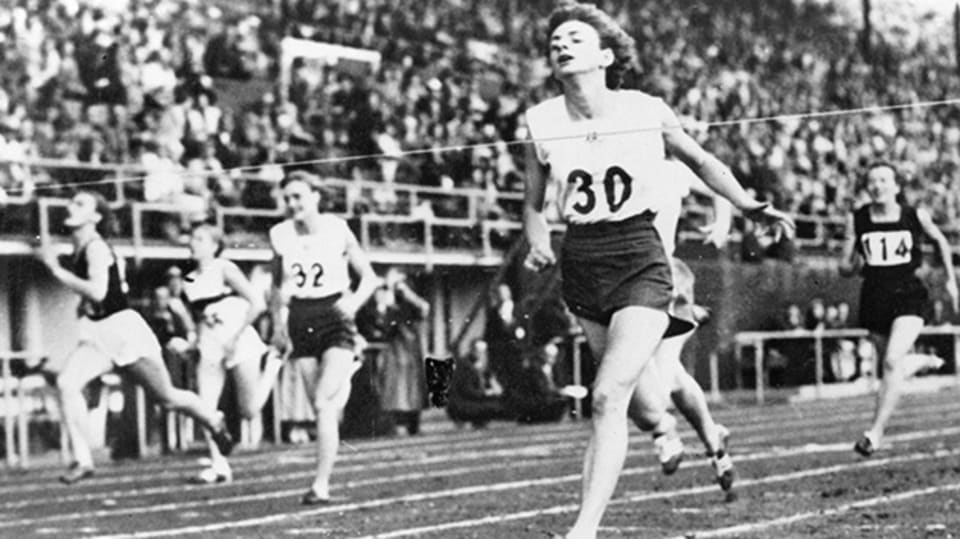Jackson surges to dazzling sprint double
Though she only competed at one edition of the Olympic Games, Australia’s Marjorie Jackson was arguably the greatest sprinter of the 1950s. Born in New South Wales, she came to fame as an 18-year-old when she beat the reigning Olympic champion Fanny Blankers-Koen, then perhaps the world's most famous female athlete. When she repeated the feat, she cemented her reputation as the coming star of women’s sprinting.

Jackson's subsequent progress was rapid. She had grown up running on grass and had to adjust to cinder tracks and starting blocks, but her natural talent was never going to be fettered.
Jackson was part of the Australian team at the Commonwealth Games in 1950 and came home with four gold medals, in the 100m, 200m, 4x100m and 4x400m. As she approached the Helsinki Games in 1952 the 20-year-old was the clear favourite to win both the 100m and 200m.
History, though, was not on her side. Australia’s women had not won a single Olympic athletics title in the 20th Century. But on the other hand, the country had never produced a track and field star like Jackson before. Blankers-Koen was expected to challenge her hard, but was taken ill in the semi-finals. Jackson meanwhile was breaking the world record. She matched that mark in the final to win by some three metres and was rewarded by the first playing of the Australian anthem, “Advance Australia Fair”, which had been adopted for the first time to replace the British anthem, God Save the Queen.
A few days later Jackson started her challenge for the 200m title, and her credentials were immediately evident. In the heats she equalled the world record, which had remarkably stood since 1935. The in the semi-finals she set a new record to go into the final full of confidence. She clinched the gold medal by half a second, crossing the line with an even greater advantage than she had enjoyed in the 100m.
She seemed poised for a third gold in the 4x100m relay, but a fumbled baton change cost the Australians a place on the podium. Nonetheless, her two dazzling victories and two world records ensured she left Helsinki with her place in the Olympic pantheon secured.
Jackson was still only 20 years old but decided to retire before the next Games. She later went into politics, serving as Governor of South Australia from 2001 to 2007. She returned to the Olympic arena in 2000, as one of the bearers of the Olympic Flag at the Opening Ceremony of Sydney Games.
